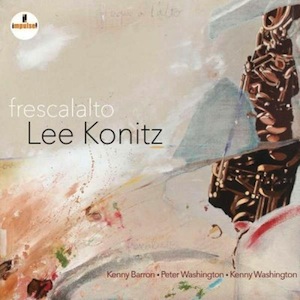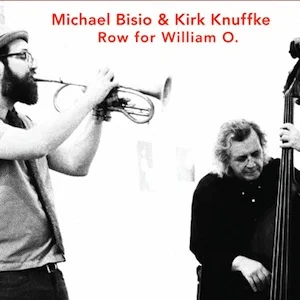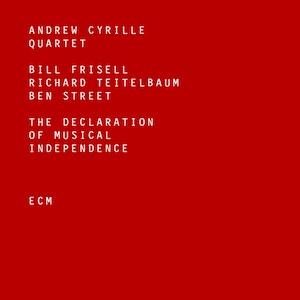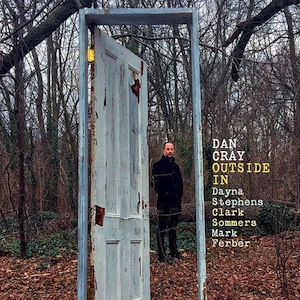Lee Konitz: alto saxophone, vocals; Kenny Barron: piano; Peter Washington: bass; Kenny Washington: drums.
Prolific alto saxophonist and composer Lee Konitz has always fought to sound distinct from everyone else. Carefully dodging Parker’s bop clichés, he was at Miles Davis’ side for The Birth Of The Cool and recorded with the pianist Lennie Tristano, a big influence in his approach to improvisation.
Throughout his nearly 70-year career, Konitz himself has been highly influential in the way of playing of several musicians.
Frescalalto marks his debut on Impulse Records and features the acclaimed pianist Kenny Barron, and a tight bass-drums engine composed of Peter Washington and Kenny Washington (no family ties, but natural musical rapport).
For this session, Konitz selected three originals and five standards, which were dressed with inventive new outfits.
The adroit quartet takes the plunge with “Stella By Starlight”, a precious piece of the Great American songbook, here structured in a funny way. One at a time, each musician rambles solo throughout the 32 bars of the song focusing more or less on the main melody.
Then comes two choruses set aside to be enjoyed in trio formation (saxophone and piano). Before returning to the theme, we still have Peter’s nimble bass solo and trading eights with the drummer.
Trading eights can also be enjoyed in Konitz’s “Kary’s Trance”, a vividly harmonized number that trembles with all the enthusiasm of the post-bop from the 50’s, time when it was recorded for the first time for the album Inside Hi-Fi. The other two originals by Konitz are “Gundula”, a weeping ballad that calls for cool-tone melodic sensibility, and “Thingin”, a swinging old hit.
Not limited to the instrument that gave him prestige, the saxophonist also sings on two tracks - “Darn That Dream”, with just piano as accompaniment, and “Out of Nowhere”, delivering a vocal improvisation. Both the latter and the closing tune, “Cherokee” have the particularity of disregarding the theme's melody, gaining a larger sense of freedom in their approach.
In “Invitation”, a typical AABA standard, Konitz kind of sticks to the same idea, opting to deliver the exact melody only in the last A of the chorus. This tune is where Barron shines the most through a masterly improvisation.
Showing a profound complicity, Konitz and his partners overcame the challenge of sounding fresh when the inspiration comes predominantly from the past. Unified in the same belief and purpose, they emphasized creativity when it comes to the standards, and displayed a perfect understanding playing the originals.
Grade B+
Favorite Tracks:
01 – Stella by Starlight ► 04 – Kary’s Trance ► 07 – Invitation








































